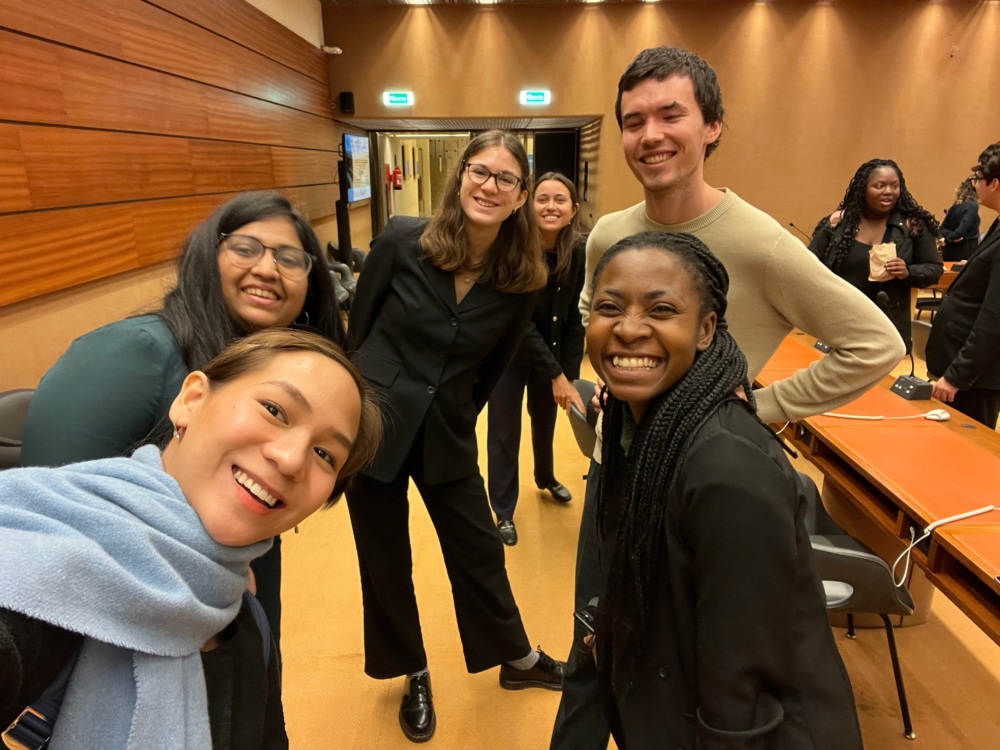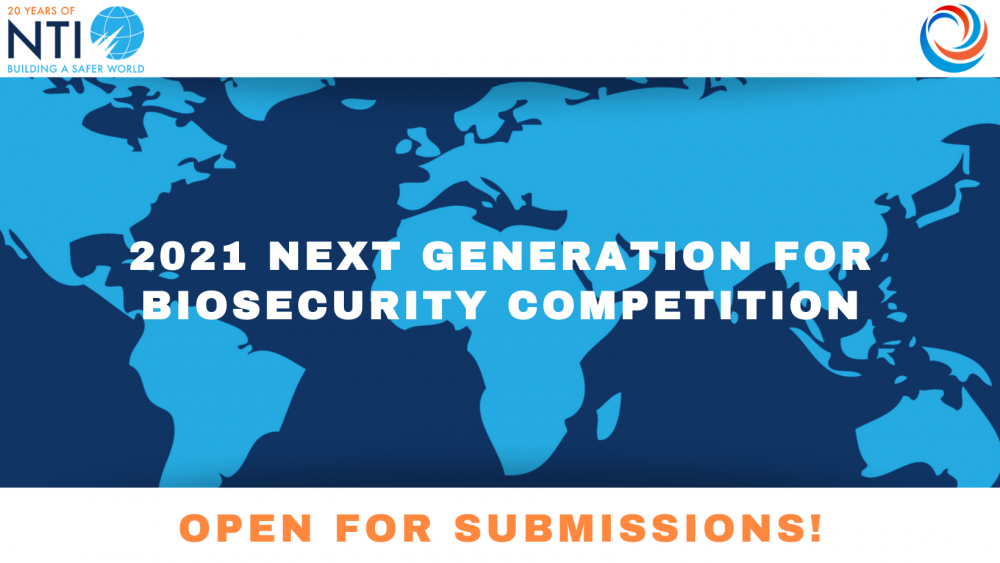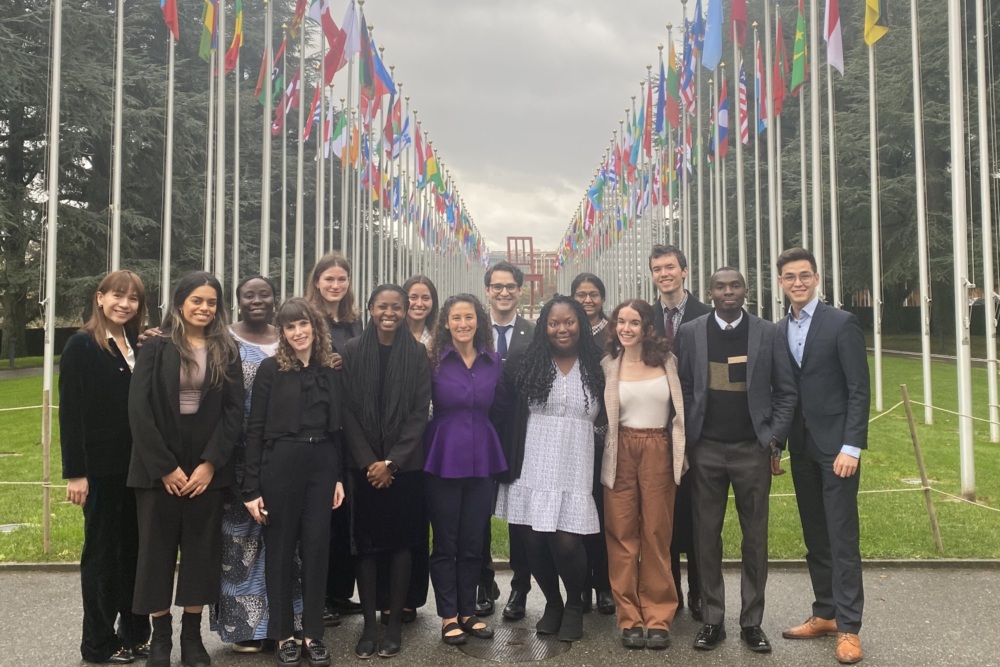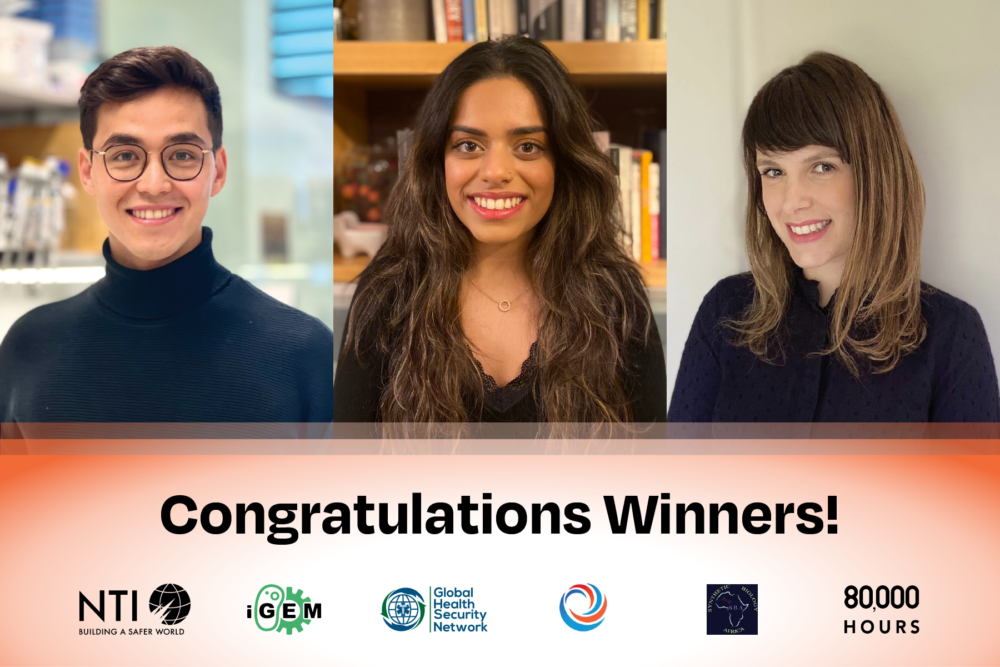
Apply for the 2024 NTI | bio Next Generation Biosecurity Delegation
NTI | bio will bring a 2024 Next Generation Biosecurity Delegation of early-career professionals to the Biological Weapons Convention (BWC) meetings from August 19 – 23.
NTI | bio is partnering with the Next Generation Global Health Security (GHS) Network to launch the fifth annual Next Generation for Biosecurity Competition to foster biosecurity professional development within the Next Generation GHS Network. We are seeking innovative and creative papers for online publication by NTI | bio and the NextGen GHS Network focused on responsible conduct of life science research. The winning team also will receive travel and lodging support to attend and present during a side-event at the 2021 Biological Weapons Convention Meeting of States Parties in Geneva[1].
As emerging biological risks continue to grow with the rapid pace of biotechnology advances, safe, secure, and responsible conduct of life science research is increasingly important. For this year’s competition, submissions should address the following questions and subordinate considerations:
Submission deadline is August 3, 2021 at 11:59PM ET. Submissions should be sent in pdf form to NTI via [email protected]. Winners will be announced in October 2021.
The Next Generation for Biosecurity Competition seeks to cultivate regional and global partnerships among Next Generation GHS professionals to:
Watch our virtual panel featuring an overview of the 2021 Next Generation for Biosecurity Competition, the NextGen GHS Network, and a discussion moderated by a former winner of the competition with experts on this year’s prompt and strategies for success here.
NTI is a nonprofit global security organization focused on reducing nuclear and biological threats imperiling humanity. NTI has addressed biosecurity issues since our founding in 2001. NTI | bio is developing new initiatives to curb global catastrophic biological risks, catalyze international biosecurity norms and innovation, enhance biosurveillance for emerging threats, and advocate for measurable biosecurity commitments as an integral component of the Global Health Security Agenda (GHSA).
The Next Generation Global Health Security (GHS) Network engages and facilitates contributions by emerging scholars, scientists, and professionals from government and non-governmental institutions to the Global Health Security Agenda (GHSA) and other global health security projects. Through its mission, the Next Generation Network promotes the values of inclusion, collaboration, education, innovation, and participation to approach and overcome the biggest challenges facing the health security fields today.
[1] If the 2021 Biological Weapons Convention Meeting of States Parties is postponed due to the on-going COVID-19 pandemic, NTI will identify an alternative presentation opportunity for the winning team.
[2] “A whole-of-government national biosafety and biosecurity system is in place, ensuring that especially dangerous pathogens are identified, held, secured and monitored in a minimal number of facilities according to best practices; biological risk management training and educational outreach are conducted to promote a shared culture of responsibility, reduce dual use risks, mitigate biological proliferation and deliberate use threats, and ensure safe transfer of biological agents; and country-specific biosafety and biosecurity legislation, laboratory licensing, and pathogen control measures are in place as appropriate.” (Joint External Evaluation Tool and Process Overview. Geneva: World Health Organization; 2016. License: CC BY-NC-SA 3.0 IGO.)
[3] “Knowledge and technologies generated by legitimate life sciences research that may be appropriated for illegitimate intentions and applications.” (Responsible Life Sciences Research for Global Health Security: A Guidance Document. Geneva: World Health Organization; 2010. License: CC BY-NC-SA 3.0 IGO.)
Sign up for our newsletter to get the latest on nuclear and biological threats.
NTI | bio will bring a 2024 Next Generation Biosecurity Delegation of early-career professionals to the Biological Weapons Convention (BWC) meetings from August 19 – 23.
This year, the competition invites innovative and creative papers focused on how investments in biosecurity can both contribute to a more equitable society and reduce biological risks.
Gurpreet Dhaliwal, Askar Kleefeldt, and Alexandra Klein have won the seventh annual Next Generation for Biosecurity Competition.


